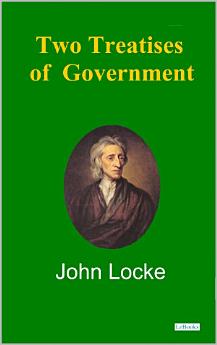Two Treatises of Government - Locke
ກ.ພ. 2018 · Lebooks Editora
ປຶ້ມອີບຸກ
100
ໜ້າ
family_home
ມີສິດ
info
reportບໍ່ໄດ້ຢັ້ງຢືນການຈັດອັນດັບ ແລະ ຄຳຕິຊົມ ສຶກສາເພີ່ມເຕີມ
ກ່ຽວກັບປຶ້ມ e-book ນີ້
"Treatise of Government" is one of the great classics of Political Philosophy. Its author, John Locke, became one of the greatest philosophers of liberalism and democracy, and his ideas remain relevant and are studied to this day. Locke's thoughts influenced important events in history, particularly in Europe and America. He is often called the theorist of the English Revolution (1688) and was the main source of ideas for the American Revolution (1776), influencing the Declaration of Independence and the state constitutions of that country. In "Second Treatise of Government," John Locke expresses his liberal thinking and his position against absolutist governments with arguments that demonstrate that government emanates from the people and that, together with the law, should be used for the common good.
ກ່ຽວກັບຜູ້ຂຽນ
John Locke was an important English philosopher. He is considered one of the leaders of the philosophical doctrine known as empiricism and one of the ideologists of liberalism and enlightenment. He was born on August 29, 1632, in the English town of Wrington.
ໃຫ້ຄະແນນ e-book ນີ້
ບອກພວກເຮົາວ່າທ່ານຄິດແນວໃດ.
ອ່ານຂໍ້ມູນຂ່າວສານ
ສະມາດໂຟນ ແລະ ແທັບເລັດ
ຕິດຕັ້ງ ແອັບ Google Play Books ສຳລັບ Android ແລະ iPad/iPhone. ມັນຊິ້ງຂໍ້ມູນໂດຍອັດຕະໂນມັດກັບບັນຊີຂອງທ່ານ ແລະ ອະນຸຍາດໃຫ້ທ່ານອ່ານທາງອອນລາຍ ຫຼື ແບບອອບລາຍໄດ້ ບໍ່ວ່າທ່ານຈະຢູ່ໃສ.
ແລັບທັອບ ແລະ ຄອມພິວເຕີ
ທ່ານສາມາດຟັງປຶ້ມສຽງທີ່ຊື້ໃນ Google Play ໂດຍໃຊ້ໂປຣແກຣມທ່ອງເວັບຂອງຄອມພິວເຕີຂອງທ່ານໄດ້.
eReaders ແລະອຸປະກອນອື່ນໆ
ເພື່ອອ່ານໃນອຸປະກອນ e-ink ເຊັ່ນ: Kobo eReader, ທ່ານຈຳເປັນຕ້ອງດາວໂຫຼດໄຟລ໌ ແລະ ໂອນຍ້າຍມັນໄປໃສ່ອຸປະກອນຂອງທ່ານກ່ອນ. ປະຕິບັດຕາມຄຳແນະນຳລະອຽດຂອງ ສູນຊ່ວຍເຫຼືອ ເພື່ອໂອນຍ້າຍໄຟລ໌ໄໃສ່ eReader ທີ່ຮອງຮັບ.








